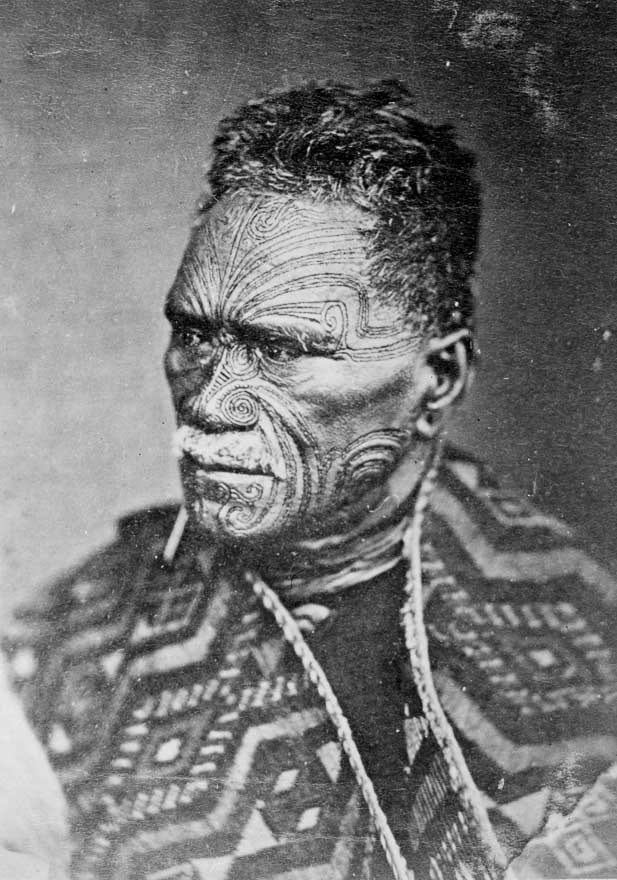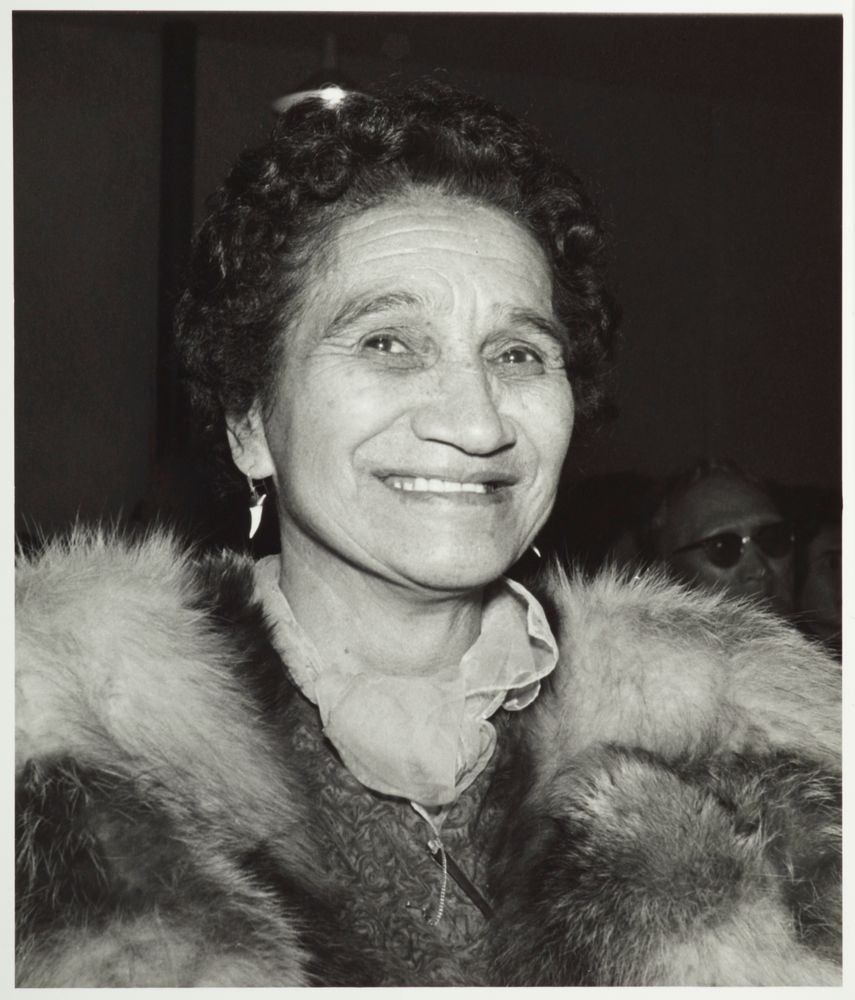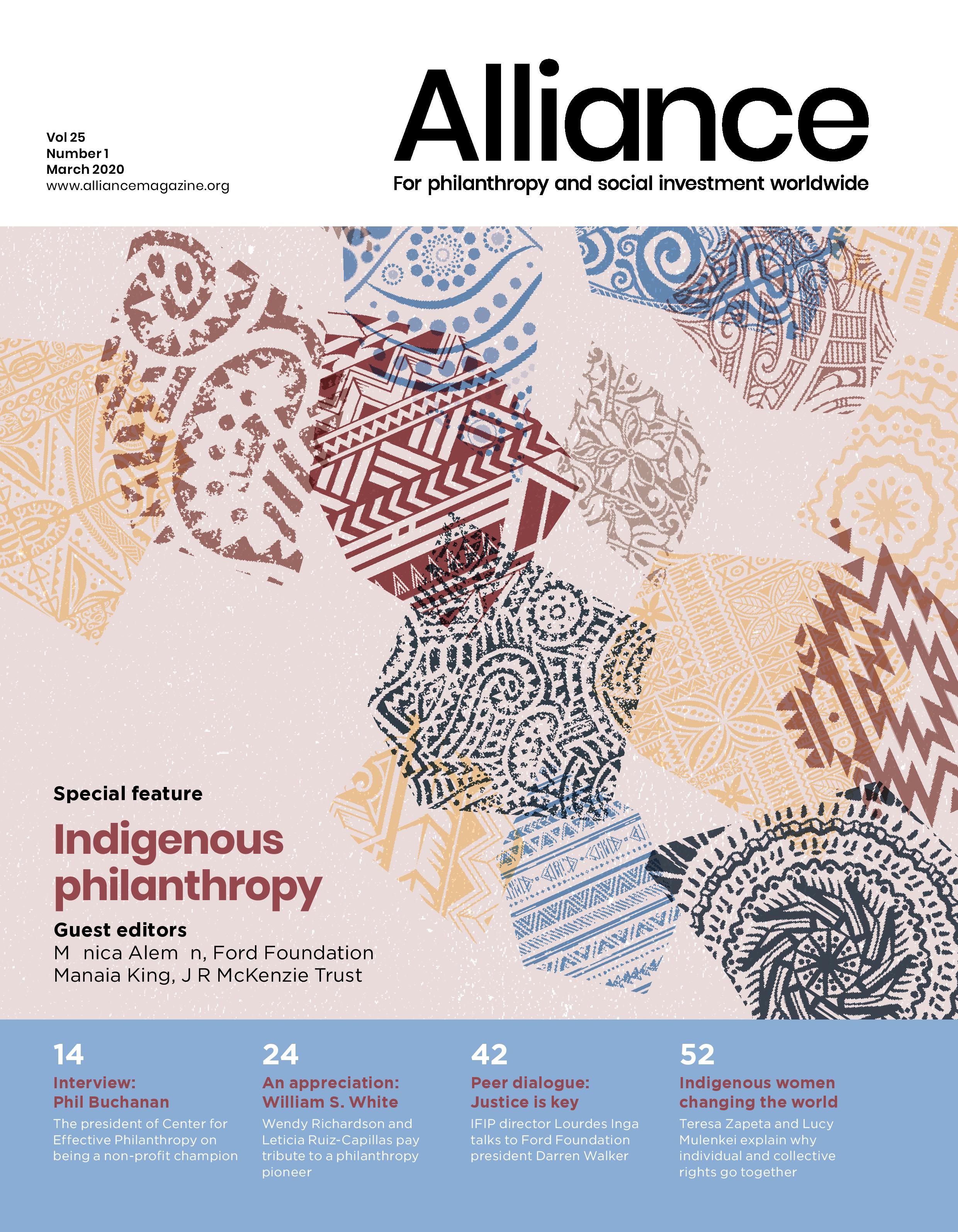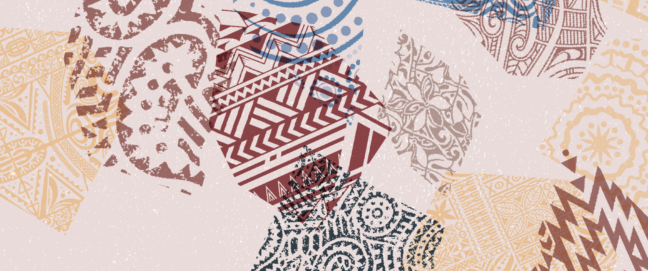Philanthropy can help restore the power and dignity of Indigenous Peoples and their cultures, but it takes more than writing cheques, having meetings and making the right noises
‘He aha te mea nui o te ao, he tāngata, he tāngata he tāngata’ – ‘What is the most important thing in this world, it is people, people, people.’ (Māori whakatauakī/proverb).
Māori are tangata whenua – the Indigenous people of Aotearoa New Zealand. As a Māori man chairing the board of a family foundation, I find myself in a very exclusive club. At the end of 2018, I was elected as the first Māori chair of the J R McKenzie Trust which also meant that I was the first Māori chair of a family foundation in Aotearoa. The very fact that this didn’t occur until 2018 might seem anomalous to those who see this country as a trailblazer when it comes to the advancement and recognition of Indigenous rights and freedoms.
However, the truth is that our immeasurable traumatic experience of colonisation, the confiscation of our lands, and the deliberate and pervasive destruction of our culture and heritage had pushed us near to collapse as a people. It’s only relatively recently, through the leadership and bravery of many Indigenous rangatira or leaders such as Tawhiao Te Wherowhero (the second Māori king), Dame Whina Cooper, Princess Te Puea Herangi and many others, that we have begun to reclaim our identity, our language, our land and our right to be at the decision-making table in every aspect of Aotearoa New Zealand society. This includes philanthropy.

Tawhiao Te Wherowhero, second Māori king.
I see philanthropy as one of the bastions that Māori are yet to fully breach and perhaps the enduring impact of colonisation might play a role in that. While I can attest to the desire and willingness of my own organisation to embrace Māori leaders, values, customs and practices, and to move away from systems and beliefs that could be seen as a manifestation of colonial tendencies (for example, the idea of doing to, as opposed to doing with), I believe that there is still some way to go. However, it is not all bleak. I sense a shift happening across philanthropy in Aotearoa.
Philanthropy New Zealand’s recent edition of its magazine Philanthropy News, was dedicated entirely to philanthropy and Te Ao Māori (The Māori World). The primary message was that philanthropic engagement with Māori and grantmaking towards Māori initiatives continues to grow, and there appears to be a strong desire by philanthropic organisations who are not currently engaging with Māori, to take an initial step. This is positive news. There are a number of highly respected philanthropic organisations in Aotearoa such as the Todd Foundation and Foundation North, who, along with the J R McKenzie Trust, are willing to help guide others on how to walk alongside Māori as partners, because it offers much more opportunity to achieve the aspirations of all parties.
While money might open the door, many will find themselves pushed back out of that same door because of an approach that lacks the desire to create a true and meaningful relationship.
A desire to work closely with Māori cannot be accidental or opportunistic. It has to be deliberate and calculated and driven by Indigenous and non-Indigenous leaders in the philanthropic sector who are dedicated to enhancing the impact of philanthropy. Many of the conversations that I have had with philanthropic leaders and organisations who have a desire to engage better with Māori, but don’t know where to begin, have usually centred around three key themes.

Dame Whina Cooper.
First, examine your own organisation and ask yourself, are you ready to have a relationship with Māori? Do you have the right people at governance and operational level to steer and implement your desire to engage and partner with Māori? Do you have a strategy that prioritises Māori outcomes and have you set aside the resources and funding to commit to those priorities? And ask yourself, do you actually believe in why partnering with, and investing in, Māori is the right thing to do?
Second, build a relationship with Māori, don’t just rush in with your money. While money might open the door, many will find themselves pushed back out of that same door because of an approach that lacks the desire to create a true and meaningful relationship coupled with the hope that one day it could evolve into a partnership. Therefore, build a relationship first. Seek to understand the dreams and aspirations of the Māori that you wish to partner with.
Focusing on people and their experiences, their aspirations and dreams, and supporting self-determined approaches to achieve their goals, will bring you closer to forming an enduring and respectful relationship.
Third, understand Māori customs, values and practices within your organisation. It is not sufficient to have hard structures in place that give effect to Māori desires. Your organisation and the people within it, board and staff, need to understand these. Much of Te Ao Māori exists on a higher plane, accessed through mediums such as waiata (songs), karakia (prayers) and tikanga (rituals). By understanding the importance of these things, an organisation will naturally become more authentic when engaging with Māori and be seen as being more culturally responsive.
While these three key themes might help organisations seeking to better engage with Māori, it will ultimately come down to people. I kicked this article off with a Māori whakatauakī about people being the most important thing. In the context of philanthropy, focusing on people and their experiences, their aspirations and dreams, and supporting self-determined approaches to achieve their goals, will bring you closer to forming an enduring and respectful relationship.
I am truly privileged to be part of the philanthropic movement in Aotearoa because I have been given an opportunity to help restore my people through philanthropic means to the position they occupied before colonisation. I am also proud to be walking alongside non-Indigenous philanthropic organisations, as many take their first steps towards true engagement with Māori. I am hopeful that we in Aotearoa can be seen as a positive example, notwithstanding the long path that we must still take to restoring the full mana (power) and dignity of Māori, one board and one philanthropic organisation at a time.
Manaia King is chair of the J R McKenzie Trust.
Email manaia.king038@msd.govt.nz







Comments (0)